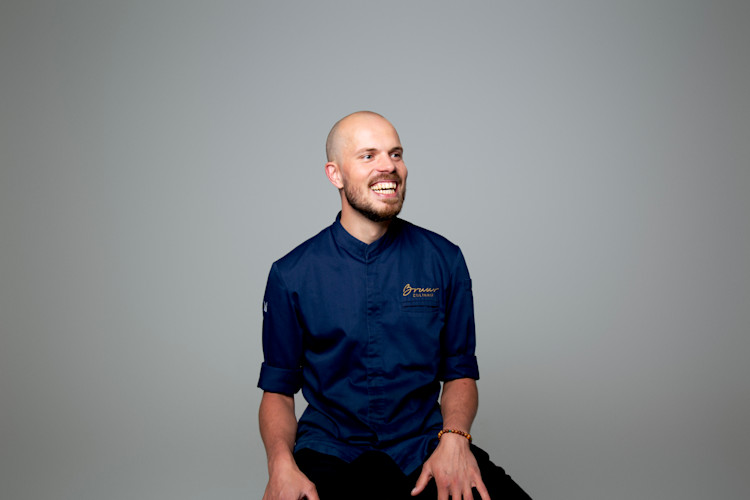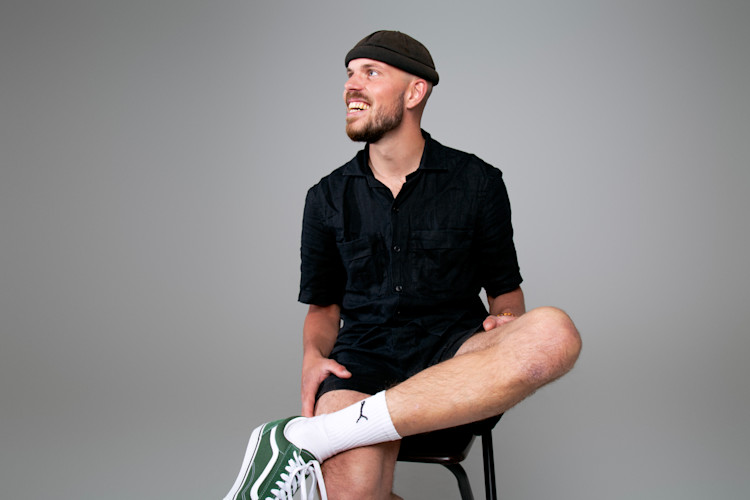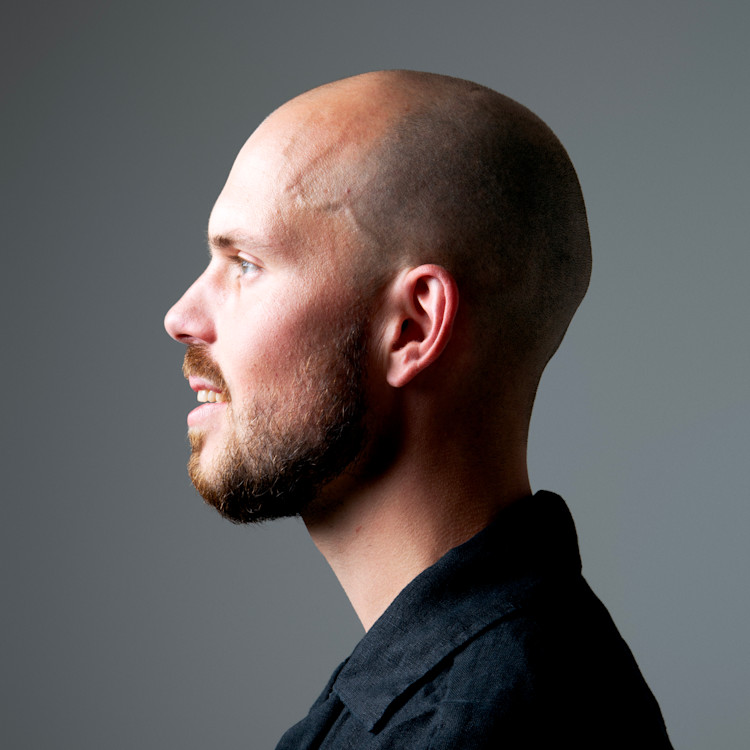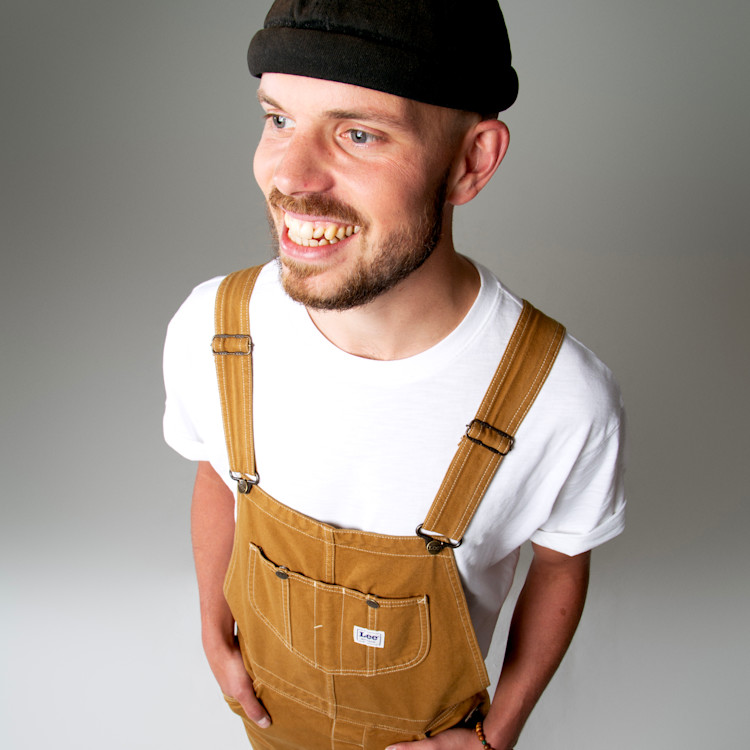
Dion
Meet Dion — former manager of BounceSpace Overtoom, now a full-time culinary chef. He returned to his roots — quite literally — and now runs Bruur Culinair with his brother, cooking straight from their parents’ biodiverse garden in Sint Anthonis, Noord-Brabant. What started as a family hobby turned into a mission: reconnecting people through food, flavor, and community.

When people ask you at a party what you do, what do you say?
D: I tell them I’m a cook. That’s the short answer. The longer story? My brother and I started cooking together about five years ago. It began with an abundance of vegetables from our parents’ garden — a proper Burgundian jungle filled with forgotten vegetables, rare herbs, and around 190 types of tomatoes. We started making menus for friends and family, and that blossomed into Bruur Culinair. We now cater weddings and private dinners, all on location, using seasonal produce straight from that magical garden.Hold on — 190 types of tomatoes? I thought there was just... one.
D: Haha, that’s a common reaction. But truly — there are thousands of tomato varieties. Our parents have a greenhouse with nearly 190 kinds alone. Each one has its own flavor profile, texture, and story. When they're in season — usually July or August — we serve them almost untouched: just olive oil, sea salt, and pepper. That’s enough. The flavor is already there if you just let nature do her thing.
So your menu depends on what grows in your parents’ garden?
D: Exactly. We let the garden guide us. We’re constantly experimenting — recently with fermentation — so we can use the harvest year-round. And that garden isn’t just a source of food; it’s a place of gathering. We sometimes host dinners there, and my other brother joined me and my brother on our new concept dinner Zin•tuig: a full sensory dinner where people don’t just eat — they experience. We walk them through the garden, tell the stories behind the ingredients, and serve an eight-course meal that appeals to all the senses. Smell, touch, taste, sound — it’s all part of the evening. The goal is simple: to reconnect people to their food — and to each other.That’s beautiful. Was the garden always this special to you growing up?
D: Not consciously. As kids, it was just the backyard — a place to play, hang out, maybe get roped into some weeding. The deeper appreciation came later. Only recently have I realized how lucky we were to grow up with that access to nature and flavor. Now, helping my parents maintain it and learning from them every week, it feels like a legacy I’m part of.
And you do all this with your family? That can be intense. No arguments?
D: No fights yet, no. We actually work really well together. It helps that we were raised in a family where communication mattered. My parents are still very involved — we garden together every week. It’s all rooted in love and trust. Of course we argue sometimes — we’re siblings — but the shared vision pulls us together. Even our sister is active on the land; she uses the garden for retreats and lectures. That place is becoming a kind of family HQ. We each have our own projects, but everything grows from the same soil.Was building a community around the garden always part of the plan?
D: Maybe not at first, but it’s becoming the heart of what we do with Bruur Culinair. Food has this beautiful way of opening people up. It’s intimate, it’s universal, and it creates space for conversation — or just quiet company. If we can nourish someone’s body and spirit, that’s success. And it doesn’t have to be grand. A single evening, a shared laugh, a feeling of being seen — that’s already enough. We don’t need a big platform to make a difference. Just a table, a plate, and a bit of attention."Food has this beautiful way of opening people up. It’s intimate, it’s universal, and it creates space for conversation — or just quiet company."
That sounds like we must make a bit more time for eating?
D: Exactly. In our part of the world, food is often treated as fuel — something to squeeze in between appointments. But in other cultures I’ve visited, like Japan or parts of Africa, food is a moment. It demands attention. It brings people together. Here in Brabant, we’re already a bit more Burgundian by nature — we enjoy the long table, the good glass of wine. I just want to stretch that moment even further. Add intention. Create space for connection, especially for those who don’t often get invited to the table.